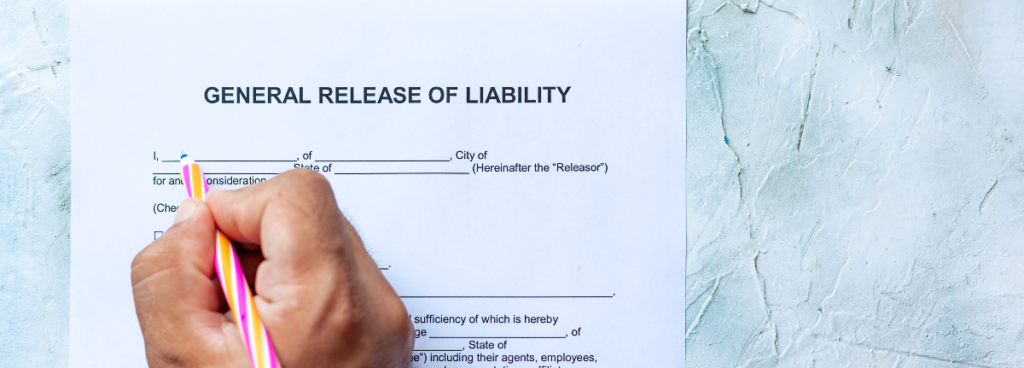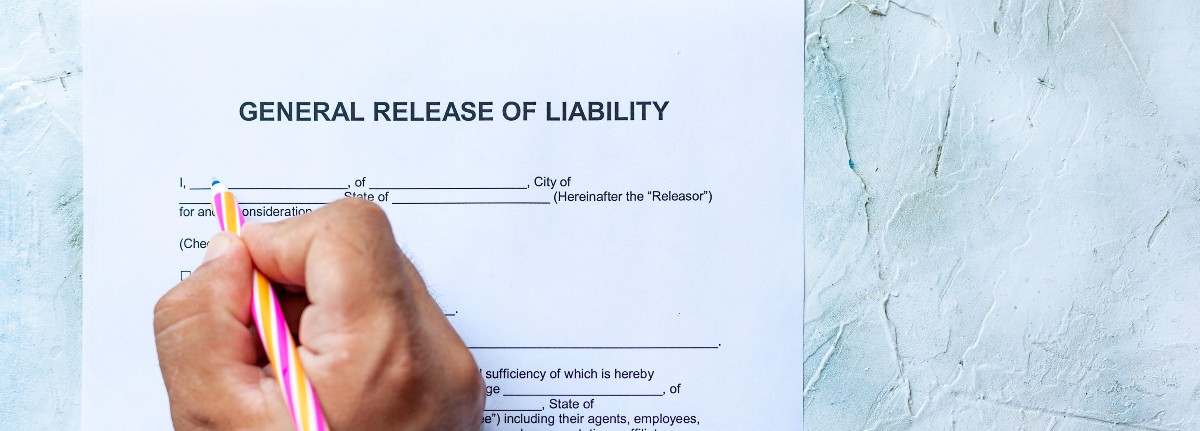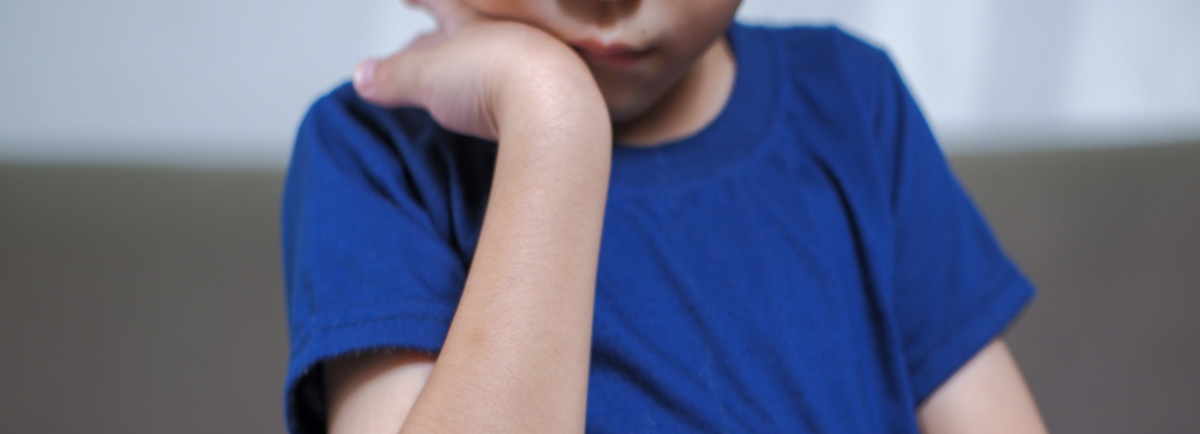Can You File an Injury Claim if You Signed a Liability Waiver?

Companies that offer dangerous or life-threatening activities often ask their customers to sign a liability waiver. For example, before you go skydiving, use equipment at a gym/fitness center or go rock climbing, you may be asked to sign a document that shields the company from liability if you get injured.
While these businesses would like you to believe they can never be held liable for an injury to a customer who signed a liability waiver, that may not always be true. Every situation is different and if negligence occurred and resulted in an injury, you may be able to file a claim for compensation.
Call our licensed Cleveland personal injury lawyers today to discuss potential legal options. There are no upfront fees, and the consultation is free of charge.
What is a Liability Waiver?
A liability waiver is a legal document that shields one party from liability for injuries to the person who signs the document. When you sign a liability waiver, you are waiving your right to take legal action against a business for an injury you suffer while patronizing the business.
For example, a liability waiver for a gym/fitness center is designed to shield the business from liability for injuries you suffer while using the facility and equipment in that facility. If you sign a waiver before skydiving, using a trampoline at an indoor trampoline park, ziplining, bungee jumping, rock climbing or some other dangerous activity, the company that sponsors the activity is hoping the waiver will protect them from injury claims.
It is important to note schools and youth organizations often want parents to sign liability waivers when their children go off campus or take part in sporting events.
Why Do Businesses Use Liability Waivers?
Ohio’s Supreme Court has ruled that people who take part in sports and recreational activities assume the risks that are inherent in those activities. In other words, you cannot recover compensation for an injury that happened because of ordinary and predictable parts of the activity. For example, if you play football and suffer a serious knee injury, that could be considered a risk you assumed by playing football.
In Ohio, there are state laws protecting veterinarians, event organizers and equine professionals from liability for damages that result from an inherent risk of an equine activity.
Businesses and other organizations use liability waivers to shield themselves from risks that are inherent to an activity and risks that may not be inherent in the activity.
Do Courts in Ohio Enforce Liability Waivers?
Generally, Ohio courts consider liability waivers to be valid and enforceable. However, if a liability waiver is challenged in court, the court must consider whether the language in the waiver is clear, unequivocal and unambiguous.
In other words, there should be a reasonable expectation that the person who signed it understood what he or she was agreeing to. That said, you need to make sure to read the document carefully. If the waiver is clear, you cannot challenge it simply because you did not read it.
What About Waivers Signed by Parents?
Ohio is one of a few states where liability waivers signed by a parent on behalf of a child can be enforced. The landmark case on waivers signed by parents on behalf of minor children is from 1998. A seven-year-old boy suffered an injury in a soccer game hosted by a non-profit organization. The parents of that child had signed a pre-injury liability waiver.
The case made it all the way to the Ohio Supreme Court, which upheld the lower court’s ruling on behalf of the non-profit organization. The court said coaches and others in non-profit organizations are often volunteers who should not face the threat of potential lawsuits that could result in significant damage awards. The court also said most non-profits do not make a profit and do not have insurance policies. If liability waivers are not enforced, non-profits may decide their efforts are not worth the risk.
The court also said the Due Process Clause of the U.S. Constitution allows parents to make decisions on behalf of their children, including assuming the risk of physical injury on behalf of their children.
What this ruling means is liability waivers signed by parents before a child takes part in a recreational activity that is led by volunteers and run by a non-profit organization can be enforced. The Ohio Supreme Court Ruling did not, however, address whether liability waivers from for-profit organizations with paid employees can be enforced.
When Can You File a Claim After Signing a Liability Waiver?
Typically, injury claims that arise because of willful and wanton conduct cannot be waived by a liability waiver. However, there is often room for interpretation of willful and wanton conduct. That is why it is important to seek legal help as soon as possible. A licensed attorney can determine if you may have legal options.
If you have reason to believe your injury or your child’s injury was the result of intentional and/or malicious conduct, you may have a case. That said, it may not be enough to prove the at-fault party exhibited a lack of reasonable care. Your lawyer may need to prove the at-fault party knew what would happen and allowed it to happen, or that he or she wanted it to happen for the intentional purpose of hurting someone.
Have Questions After an Injury? Call for Assistance
At a time like this, you need experienced legal assistance. You do not want to rely on statements from the insurance company or at-fault party.
The experienced attorneys at Friedman, Domiano and Smith are ready to help you seek full compensation for the damages you have suffered. We can determine if you may have a valid claim and there are no upfront fees or costs.
Call today. We are ready to help. 216-621-0070
Comments are now closed




Comments